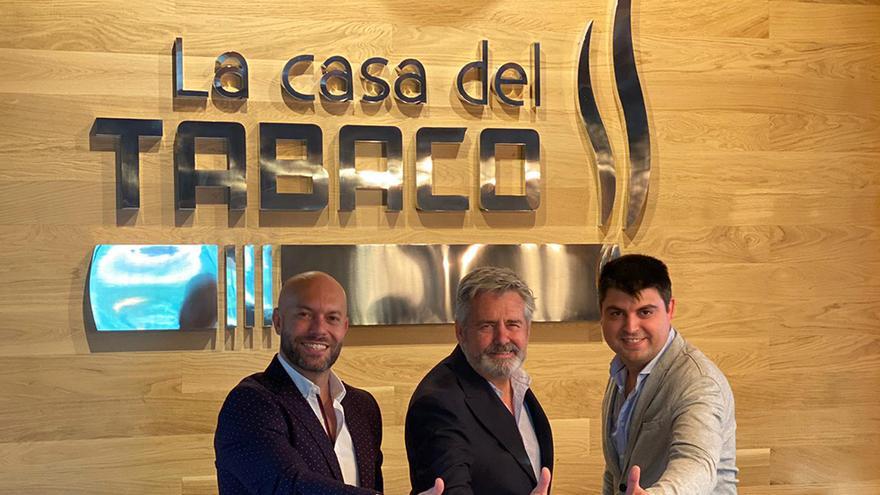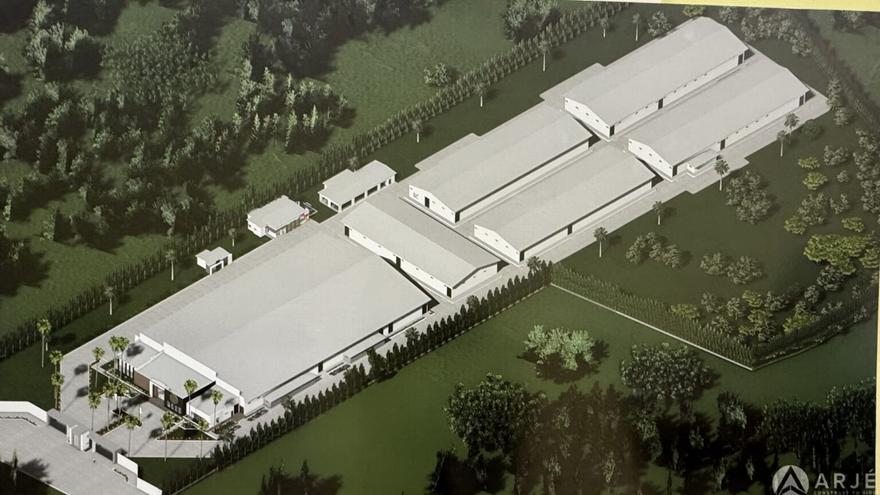
![]() 14ymedio, Havana, 10 February 2024 — The Supreme Court of Spain condemned two companies in the city of Valencia – Gesinta Invest Company and La Casa del Tabaco – for marketing the F series of the Nicaraguan brand of cigars from Condega, which imitates the design of the Cuban Partagás. The cigar monopoly on the Island, the Habanos S.A. corporation, celebrated the “unfair competition” verdict.
14ymedio, Havana, 10 February 2024 — The Supreme Court of Spain condemned two companies in the city of Valencia – Gesinta Invest Company and La Casa del Tabaco – for marketing the F series of the Nicaraguan brand of cigars from Condega, which imitates the design of the Cuban Partagás. The cigar monopoly on the Island, the Habanos S.A. corporation, celebrated the “unfair competition” verdict.
The corporation had filed a lawsuit against both Valencian distributors in 2018 for the “almost identical presentation” to that of Partagás with which they sold the Condega cigars, which “blatantly infringed” upon Spain’s agreements with Havana. The ruling, which ratified a previous ruling of the Provincial Court of Valencia and was handed down at the end of January, illustrates the tension between Cuba and Nicaragua in the world of cigars.
Politically allied, both countries are fierce rivals when it comes to cigar production. However, the Island, which has the prestige of producing the best quality leaf, has lost ground among international consumers – especially those from the United States, who cannot legally buy Cuban cigars – and Nicaraguan tobacco seems of similar quality for a lower price.
Nicaragua has been able to take advantage not only of Cuba’s technical knowledge but also its fame and imagery
Nicaragua, where many producers from the Island emigrated after 1959, has been able to take advantage not only of Cuba’s technical knowledge but also its fame and imagery. At the core of the lawsuit in Valencia, which now prohibits Gesinta and La Casa del Tabaco from selling Condega cigars, is the similarity of colors in the rings of the Nicaraguan brand and those of the D series of Partagás.
Both rings are identical in almost everything except the name of the cigar: two golden bands below and above the name, also in gold. This ring has been “very characteristic” of Partagás since the 1930s, Habanos S.A. claims, and has contributed to the brand “always being in the top positions” on the lists of premium cigars.
This Thursday, the members of the Cigar Club of Madrid – one of the landmarks of Cuban cigars in Spain – received a communication about the Supreme Court’s ruling, and the Condegas were unambiguously qualified as mere Nicaraguan “copies” of Partagás.
“The Condega Serie F are cigars whose Central American origin has nothing to do with those that are rolled in the Cuban factories, which have the worldwide D.O.P. certification. (Protected Designation of Origin),” he clarified.
In addition, the Club defended the primacy of Cuban cigars: “We do not let ourselves be fooled by something that pretends to be what it is not, either for its rings, formats and even boxes, because in Cuba there are twenty-seven brands of cigars, which are the most smoked and appreciated premium cigars by fans around the world,” he said.
With a relatively recent cigar tradition, Estelí has become Cuba’s strongest competitor in the international market
The Condega brand, founded in 1997 by the Hispanic-Cuban businessman Eduardo Fernández Pujals – one of the former owners of the Spanish company Telepizza – has its operating base in the municipality of Estelí, in the western part of Nicaragua.
With a relatively recent cigar tradition, Estelí has become Cuba’s strongest competitor in the international market. “Estelí’s great irony is that it is full of American and Cuban-American anti-Castros who became billionaires with cigars in the 1960s,” a source in the Nicaraguan municipality tells 14ymedio.
“The Plascencia and the Padrón, two Cuban-American families, are among the strongest. They have plantations in Estelí, Condega and Jalapa. Cuban-Americans have caused a notable increase in the price of properties – even more expensive than much of Managua – because they pay without hesitation what people ask for their lands and houses,” he adds.
The Cuban regime has also settled in Estelí, as attested to by the Nicaragua Investiga media last November. At least nine farms in the town, local producers said, were being managed by alleged Cuban businessmen. The most widespread suspicion among Estelí’s cigar makers, he added, is that these businessmen are Cubans who have just arrived in Nicaragua as “front men.”
The small farmers are sure that Cuban investors, some associated with Cubatabaco – the company that controls cigars on the Island – arrived “from the hand” of the Government of Daniel Ortega and have been located on farms bought from other businessmen or that were abandoned after the State’s intervention.

Estelí is about to inaugurate a cigar megafactory by American businessman Rakesh Rocky Patel. Considered an up-and-comer in the world of cigars, Patel – who amassed a fortune working as a lawyer for Hollywood actors – founded the company Tabaco Villa Cuba S.A (Tavicusa) in Nicaragua in 2008.
Although Patel is proud of not having Cuban “roots” or “family,” in order to dethrone Cuban cigars, he recruited in 2015 one of the best cigar merchants in Havana, Hamlet Paredes. With the advice of Paredes, Patel – who took the pulse of the competition during the 2016 Cigar Festival – managed to position his cigars at the top of the lists of the best in the world.
Although Paredes broke with Patel in 2022 to accept a job in a cigar shop in Ireland, the American’s plans are going at full speed in Estelí. At the end of January, the Nicaraguan newspaper La Prensa detailed Patel’s megafactory project. In addition to producing 60,000 cigars a day, the company will have facilities to prepare the leaf and carry out other processes.
Last year Patel achieved an income of 400 million dollars from the marketing of his cigars – 85% of them to the United States – a figure that is quite close to the annual income of Habanos S.A., which in 2022 obtained 545 million dollars. The turnover figure in 2023 for the Cuban monopoly should be known on February 26, with the beginning of the XXIV Cigar Festival, an event that the regime takes advantage of to oxygenate its coffers with the sale of its star product and remind millionaires from all countries that it still holds the crown as the best tobacco producer in the world.
Translated by Regina Anavy
____________
COLLABORATE WITH OUR WORK: The 14ymedio team is committed to practicing serious journalism that reflects Cuba’s reality in all its depth. Thank you for joining us on this long journey. We invite you to continue supporting us by becoming a member of 14ymedio now. Together we can continue transforming journalism in Cuba.
